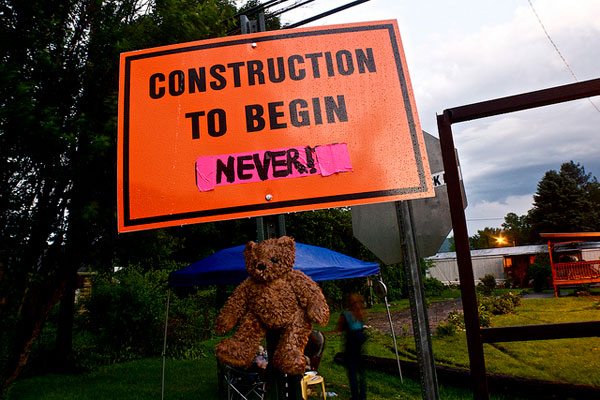
January 10, 2018; Rolling Stone
Rolling Stone reported earlier this month that a federal judge has issued what could be a groundbreaking sanction on a nonprofit law firm. The Community Environmental Legal Defense Fund (CELDF) was ordered in early January to pay $52,000 to an oil and gas exploration company for defending a rural township’s ban on underground injections of waste from fracking. The Pennsylvania General Energy Company (PGE) and the Pennsylvania Independent Oil and Gas Association sought the sanctions after a six-year battle with Grant Township, a rural Pennsylvania township.
CELDF has defended the township’s efforts to pass ordinances preventing an industrial site build. The township’s residents drafted a Community Bill of Rights ordinance in 2014 prohibiting the dumping of toxic frack waste within the community. After a lawsuit by PGE, a federal judge overturned parts of the ordinance that banned frack waste. The township passed a new law, this time through its local constitution. In 2017, Grant Township was again sued, this time by the Pennsylvania Department of Environmental Protection, which said the township rules interfered with state policy.
Sign up for our free newsletters
Subscribe to NPQ's newsletters to have our top stories delivered directly to your inbox.
By signing up, you agree to our privacy policy and terms of use, and to receive messages from NPQ and our partners.
This isn’t the first time that CELDF has tried using community charter laws to help a municipality ban fracking—nor the first time it’s failed. The organization helped Broadview Heights, a city in Ohio, pass a city charter ordinance in 2012. The ordinance was overturned in 2015, with an Ohio court ruling that only the state had the power to permit and regulate oil wells. That case cited another 2015 Ohio case, which firmly laid the authority for gas drilling regulations at the feet of the state.
But, while the failure of city ordinances to stand up to state laws isn’t surprising, the sanctions slapped on CELDF have activists worried. The ruling declared CELDF’s lawsuit’s legal argument “frivolous,” and the court wrote that Grant Township “seeks to disavow constitutional rights afforded corporations so as to prevent PGE from the lawful exercise of its right to pursue gas extraction related activities within its borders.” A piece in EcoWatch suggests that, in an era when cities are threatened with sanctions for “sanctuary city laws” and other displays of municipal power, sanctions for fighting oil companies could set a precedent that carries into other legal fields.—Lauren Karch













